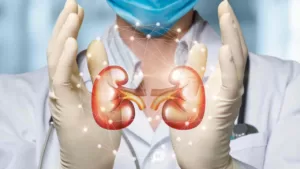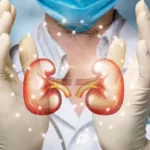The Best Fluffy Pancakes recipe you will fall in love with. Full of tips and tricks to help you make the best pancakes.
Reversing Periodontal Disease Naturally: A Comprehensive Guide
Periodontal disease, also known as gum disease, is a common oral health concern that affects countless individuals worldwide. The condition, if left untreated, can lead to serious complications, including tooth loss and systemic health issues. Understanding the various types and stages of periodontal disease is crucial in developing an effective strategy for reversing its progression.
In this comprehensive guide, we will delve into the fundamental aspects of periodontal disease, explore the signs and symptoms, and provide actionable steps to naturally reverse its effects. From improving oral hygiene practices to adopting a healthy diet and exploring the benefits of natural home remedies, we will equip you with the knowledge to combat periodontal disease proactively. We will address the importance of regular dental visits and provide additional tips to support your efforts in promoting optimal gum health. Whether you are seeking to reverse the effects of periodontal disease or simply looking to enhance your oral hygiene routine, this guide is designed to empower you with the information and resources necessary to take control of your oral health. Let’s embark on this journey towards healthier gums and a brighter smile together.
Key Takeaways:
- Consistent oral hygiene practices and a healthy diet can help to naturally reverse periodontal disease.
- Quitting smoking can have significant benefits for improving periodontal health.
- Regular dental visits are crucial for effectively reversing periodontal disease and preventing its progression.
Reversing Periodontal Disease Naturally: A Comprehensive Guide
Reversing periodontal disease naturally is a process that involves understanding the condition, recognizing its signs and symptoms, and implementing a holistic approach to oral care and overall health.
Periodontal disease, also known as gum disease, is a common but serious oral health issue caused by bacterial infection and inflammation of the gums and surrounding tissues. If left untreated, it can lead to tooth loss and has also been linked to various systemic health problems, such as cardiovascular diseases and diabetes.
Implementing natural remedies, such as proper oral hygiene practices, a balanced diet, and herbal supplements, can play a significant role in managing and reversing periodontal disease. Regular dental check-ups, professional cleanings, and early intervention through scaling and root planing are essential for controlling the progression of the disease.
Lifestyle choices, including avoiding tobacco use and managing stress, can positively impact oral health and well-being. By adopting a comprehensive approach and maintaining good dental care habits, individuals can effectively combat periodontal disease and promote a healthier mouth and body.
Understanding Periodontal Disease
Understanding periodontal disease is essential in recognizing its impact on oral health and its potential links to various medical conditions.
Periodontal disease, also known as gum disease, typically starts with the development of gingivitis, which is characterized by red, swollen gums that may bleed easily. The primary cause of this condition is the accumulation of plaque, a sticky film of bacteria that forms on the teeth. If left untreated, gingivitis can progress to periodontitis, a more severe form of the disease where the gums begin to pull away from the teeth, creating pockets that become infected. The presence of plaque and bacteria in these pockets can lead to the destruction of the bone and tissues supporting the teeth.
What is Periodontal Disease?
Periodontal disease, commonly known as gum disease, is a condition that affects the gums and the underlying structures supporting the teeth, characterized by the accumulation of plaque and the presence of harmful bacteria.
This disease can lead to inflammation, bleeding, and recession of the gums, which may ultimately result in the loss of the supporting bone and, in severe cases, tooth loss. The accumulation of plaque, a sticky film of bacteria, leads to the formation of tartar and creates an environment perfect for bacterial growth, causing irritation to the gums. Smoking, poor oral hygiene, genetic factors, and certain systemic diseases, such as diabetes, can contribute to the development and progression of periodontal disease.
Types and Stages of Periodontal Disease
Periodontal disease encompasses various types and stages, each presenting distinct characteristics, progression patterns, and treatment considerations.
One of the initial forms of periodontal disease is gingivitis, which involves inflammation of the gums and is primarily caused by plaque buildup. If left untreated, gingivitis can progress to periodontitis, where the infection spreads to the bone supporting the teeth, leading to gum recession and potential tooth loss.
Advanced periodontitis, the most severe stage, results in significant damage to the bone and connective tissue, often necessitating surgical intervention such as periodontal flap surgery or bone grafting. Treatment for periodontal disease typically involves thorough cleaning, medication, and in advanced cases, surgical procedures.
Signs and Symptoms of Periodontal Disease
Recognizing the signs and symptoms of periodontal disease is crucial for proactive oral hygiene and preventive measures, particularly in addressing the early indications of gingivitis and its impact on teeth and gums.
Periodontal disease often starts with gingivitis, characterized by red, swollen gums that bleed easily, especially during brushing or flossing. As the disease progresses, symptoms may include persistent bad breath, receding gums, loose teeth, and even changes in the way teeth fit together when biting.
It’s essential to note that lifestyle factors such as smoking can significantly increase the risk of periodontal disease. Smoking weakens the immune system, making it harder for the body to fight off infection, thereby contributing to the development and progression of periodontal problems.
Steps to Reverse Periodontal Disease Naturally
Reversing periodontal disease naturally involves a multifaceted approach that incorporates natural remedies, attentive dental care, smoking cessation, a healthy diet, and the use of antiseptic mouthwash to combat the progression of the condition.
Natural remedies such as oil pulling, green tea, and aloe vera can help reduce inflammation and promote healing in the gums. Regular dental check-ups and professional cleanings are vital in preventing and treating periodontal disease. Smoking cessation is crucial as it hinders the body’s ability to fight infection and repair tissue damage. A nutrient-rich diet, including vitamin C, vitamin D, and antioxidants, fortifies the immune system and supports oral health. Using an antiseptic mouthwash helps to control bacterial growth and maintain oral hygiene.
Improve Your Oral Hygiene
Improving your oral hygiene is a pivotal aspect of combating periodontal disease, involving diligent flossing, thorough brushing, and regular dental care to maintain optimal gum and teeth health.
Flossing plays a crucial role in removing plaque and food particles from between teeth, where toothbrushes can’t reach. It’s recommended to floss at least once a day, gently curving the floss against each tooth and carefully sliding it beneath the gum line. Mastering effective brushing techniques, such as using a soft-bristled toothbrush and gentle circular motions, helps to dislodge plaque and bacteria.
Regular visits to the dentist for professional cleanings and check-ups are vital in preventing and reversing periodontal disease. Dental professionals can identify early signs of gum disease, provide tailored oral hygiene advice, and perform thorough cleanings to remove hardened plaque, also known as tartar, which cannot be removed by brushing and flossing alone.
”
Improving your oral hygiene is a pivotal aspect of combating periodontal disease, involving diligent flossing, thorough brushing, and regular dental care to maintain optimal gum and teeth health.
Flossing plays a crucial role in removing plaque and food particles from between teeth, where toothbrushes can’t reach. It’s recommended to floss at least once a day, gently curving the floss against each tooth and carefully sliding it beneath the gum line. Mastering effective brushing techniques, such as using a soft-bristled toothbrush and gentle circular motions, helps to dislodge plaque and bacteria.
Regular visits to the dentist for professional cleanings and check-ups are vital in preventing and reversing periodontal disease. Dental professionals can identify early signs of gum disease, provide tailored oral hygiene advice, and perform thorough cleanings to remove hardened plaque, also known as tartar, which cannot be removed by brushing and flossing alone.
Adopting a Healthy Diet for Oral Health
Adopting a healthy diet plays a significant role in promoting oral health, with an emphasis on incorporating vitamins, antioxidants, and essential nutrients that support gum and teeth resilience against periodontal disease.
Consuming vitamin C aids in collagen production, crucial for maintaining the integrity of gum tissue and preventing gum disease. Similarly, calcium and phosphorus are vital for strengthening tooth enamel and bones, essential for overall dental health.
Antioxidants such as vitamin E and beta-carotene help reduce inflammation and fight oxidative damage, safeguarding the gums from disease and maintaining oral tissues’ health.
Benefits of Quitting Smoking for Periodontal Disease
Quitting smoking presents substantial benefits in addressing periodontal disease, as it directly impacts lifestyle factors that contribute to the condition’s progression and severity.
By quitting smoking, individuals can significantly reduce their risk of developing severe forms of periodontal disease. The detrimental effects of smoking on gum health are well-documented. Research has shown that smokers are more likely to experience increased gum recession, bone loss, and delayed healing after dental procedures. Smoking weakens the immune system, making it harder for the body to fight off infection, which directly affects the gums and their ability to combat periodontal disease.
Effective Natural Home Remedies for Periodontal Disease
Effective natural home remedies offer valuable options for addressing periodontal disease, with potential solutions such as coconut oil, peppermint oil, and tea tree oil showcasing promising properties in promoting gum and teeth health.
Coconut oil, known for its anti-inflammatory and antimicrobial properties, can help reduce plaque buildup and combat bacteria in the mouth, contributing to healthier gums. Additionally,
peppermint oil, with its soothing and antibacterial qualities, can aid in alleviating gum inflammation and combating oral bacteria. On the other hand,
tea tree oil has been recognized for its powerful antibacterial and antiseptic effects, making it a potential aid in addressing periodontal disease.
Importance of Regular Dental Visits for Reversing Periodontal Disease
Regular dental visits hold significant importance in the process of reversing periodontal disease, offering opportunities for deep dental cleaning, professional evaluation, and tailored treatment strategies to combat the condition effectively.
These routine visits play a crucial role in preventing the progression of periodontal disease by addressing the root cause of the condition. During deep dental cleaning, dental professionals remove plaque and tartar buildup, which contribute to gum inflammation and eventual disease advancement. The professional evaluation helps in identifying the severity of the disease and determining the most appropriate treatment plan to address individual patient needs. This personalized approach ensures that patients receive the specific care required to restore their oral health efficiently.
Additional Tips for Fighting Periodontal Disease
Plus the core strategies, incorporating additional tips such as integrating omega-3 fatty acids and incorporating green tea can further bolster the efforts in fighting periodontal disease naturally.
Research suggests that omega-3 fatty acids, commonly found in fish oil, can assist in reducing inflammation associated with gum disease, thereby contributing to overall periodontal health. Adding omega-3 fatty acids supplements to your daily regimen or increasing the consumption of omega-3 rich foods like salmon, flaxseeds, and walnuts can support gum tissue integrity and decrease the risk of gum disease progression.
Furthermore, green tea is known for its antioxidant and anti-inflammatory properties. Incorporating unsweetened green tea into your routine can help combat the harmful bacteria responsible for periodontal disease, thus promoting a healthier oral environment. The polyphenols present in green tea can inhibit the growth of bacteria and reduce the severity of gum inflammation, making it a beneficial addition to a preventive oral care routine.
Conclusion
The comprehensive approach to reversing periodontal disease naturally encompasses the integration of natural remedies, proactive dental care, and preventive measures, highlighting the holistic strategies in combating this prevalent oral health condition.
When adopting a natural approach to reversing periodontal disease, individuals can benefit from the healing properties of natural remedies such as aloe vera, tea tree oil, and green tea, which have been shown to possess anti-inflammatory and antimicrobial effects, aiding in the reduction of gum inflammation and bacterial growth.
Proactive dental care practices, including regular brushing, flossing, and use of antibacterial mouthwashes, play a crucial role in preventing the progression of periodontal disease by removing plaque and bacteria, thus promoting gum health and reducing the risk of further damage.
Implementing preventive measures such as maintaining a balanced diet, avoiding tobacco products, and scheduling routine dental check-ups are fundamental in safeguarding against periodontal disease. These steps not only address the underlying causes of the condition but also contribute to overall oral health and general well-being.
FAQs about Reversing Periodontal Disease
The following section addresses common questions and inquiries about reversing periodontal disease, presenting valuable insights and professional advice to guide individuals in understanding and managing this oral health condition effectively.
Many individuals wonder whether it is possible to reverse periodontal disease once it has progressed. It’s important to understand that with proper treatment and diligent oral hygiene practices, it is possible to halt the progression of periodontal disease and even reverse its effects to some extent.
Reversing periodontal disease requires a comprehensive approach that includes professional dental care, regular maintenance, and a commitment to good oral hygiene at home.
Contact Us for Professional Advice
For personalized guidance and professional advice tailored to your specific needs and concerns regarding periodontal disease, feel free to contact our experienced team at Healthline in Palm Bay, FL.
Our dedicated team at Healthline understands the complexities of periodontal disease and offers comprehensive support to help you manage and overcome this condition. Whether you require preventive care, specialized treatment, or ongoing maintenance, we are committed to providing personalized solutions that prioritize your oral health and overall well-being.
Frequently Asked Questions
What is periodontal disease and how does it develop?
Periodontal disease is a chronic infection of the gums and surrounding tissues that support the teeth. It is caused by bacteria that accumulate on the teeth and form a sticky film called plaque. If plaque is not regularly removed, it can harden into tartar and irritate the gums, leading to inflammation and infection.
How can I tell if I have periodontal disease?
Some common signs and symptoms of periodontal disease include persistent bad breath, swollen or bleeding gums, receding gums, loose teeth, and changes in the way your teeth fit together when you bite. If you are experiencing any of these symptoms, it is important to see a dentist for a proper diagnosis.
Can periodontal disease be reversed naturally?
Yes, it is possible to reverse periodontal disease without invasive or chemical treatments. By implementing good oral hygiene habits, maintaining a healthy diet, and utilizing natural remedies, you can improve the health of your gums and prevent the progression of periodontal disease.
What are some natural remedies for reversing periodontal disease?
Some effective natural remedies for reversing periodontal disease include oil pulling, using aloe vera gel or mouthwash, chewing on neem leaves, and consuming probiotics. These methods can help reduce inflammation, kill bacteria, and promote healing in the gums.
How can a healthy diet help reverse periodontal disease?
Eating a well-balanced diet that is rich in vitamins and nutrients can help boost your immune system and fight off the bacteria that cause periodontal disease. Some foods that are particularly beneficial for gum health include leafy greens, dairy products, and foods high in vitamin C.
How long does it take to naturally reverse periodontal disease?
The time it takes to reverse periodontal disease naturally will vary depending on the severity of the condition and how well you stick to your treatment plan. With consistent effort and proper care, you may start to see improvements in your gum health within a few weeks to a few months.








